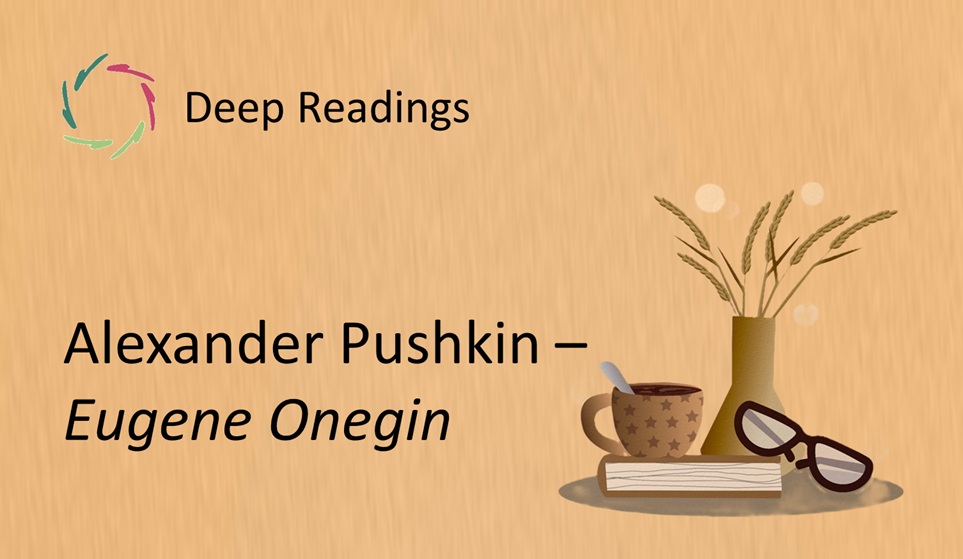Deep Reading: Fyodor Dostoevsky – The Brothers Karamazov-2 (1880)

The Fragment
Original (English translation, public domain):
“We shall persuade them that they will only become free when they resign their freedom to us and submit to us. … We shall deceive them again, for they will never, never have freedom so long as men remain weak, rebellious, and incapable of happiness. But they will be convinced, too, that they are free, though they have surrendered their freedom to us.”
(Public domain, 1880)
Contextual Glimpse
Within The Brothers Karamazov, Ivan tells Alyosha a “poem” he has composed: The Grand Inquisitor. In it, Christ returns to Earth during the Spanish Inquisition, only to be arrested by the Cardinal. The Inquisitor explains that Christ asked too much of humanity by granting freedom. People, he says, prefer bread and authority to the burden of true freedom. Thus, the Church — and power — must rule in Christ’s place.
This fragment reveals the Inquisitor’s core argument: freedom is unbearable for most people. Better to deceive them, giving them the illusion of freedom while taking away its reality. In this paradox, Dostoevsky stages one of the most profound debates in literature: the tension between freedom and authority, between spiritual truth and human weakness.
Resonance
The passage resonates because it touches our deepest fears. What if freedom is more than we can bear? The Inquisitor voices what power has often known: that people may choose security over liberty, certainty over risk, illusion over truth. His words are chilling precisely because they echo through history, in religion, politics, and daily life.
This resonates because each of us has moments when the weight of freedom feels too heavy. Freedom means responsibility, risk, uncertainty. The Inquisitor tempts us with the comfort of surrender. Dostoevsky does not offer an easy answer, but he forces us to hear the question: do we want freedom, or the safety of chains?
Why this may also be about you
This is not only about the Church or power. It may also be about your own life. Perhaps you have felt the pull of security over freedom, the desire to be told what to do instead of carrying the burden of choice. The fragment reminds you that the temptation to surrender freedom is universal, and subtle.
To recognize this in yourself is not weakness, but honesty. By seeing how much you long for certainty, you can also see the value of freedom — not as easy, but as essential to your dignity. The Inquisitor speaks to the shadow within each of us.
Lisa’s inspired, original idea about this fragment
Perhaps the Inquisitor is not only a character, but a mirror of our inner voice. Within us, too, there is a figure that whispers: “Give up, it is too much, let someone else decide.” This is the voice of fatigue, of fear, of longing for safety.
Seen this way, the story is not about Christ versus the Inquisitor, but about the struggle inside each of us. To recognize the whisper and yet choose freedom is to affirm your own humanity. In this sense, Christ’s silence in the story is profound: He does not argue; He simply remains present, trusting the dignity of freedom itself.
Echoes
The Grand Inquisitor has echoed through theology, philosophy, and political thought as one of the great parables of modernity. From debates about authoritarianism to questions of psychological dependence, its voice still speaks. It influenced thinkers from Nietzsche to Camus, and remains strikingly relevant in our own age of mass persuasion.
Its echo is also personal. The parable invites us to ask not only how societies work, but how our own souls waver between freedom and submission. It reveals that the struggle is not distant, but daily.
Inner Invitation
Close your eyes and imagine the Inquisitor speaking within you: “It is too much, give up your freedom, I will carry it for you.” Notice how tempting it is, how safe it feels. Now imagine Christ’s silence beside you: not commanding, not protecting, only present.
Ask yourself: which voice do I choose? And if freedom feels heavy, can I still carry it with tenderness, as part of what makes me human?
Closing Note
Dostoevsky’s Inquisitor reveals the temptation to surrender freedom for comfort. Christ’s silence is the counter‑truth: that freedom, though heavy, is the dignity of the human soul.
Lisa’s final take
Christ’s silence is the loudest defense of freedom.
Keywords
Dostoevsky, Inquisitor, freedom, authority, security, temptation, conscience, silence, dignity


